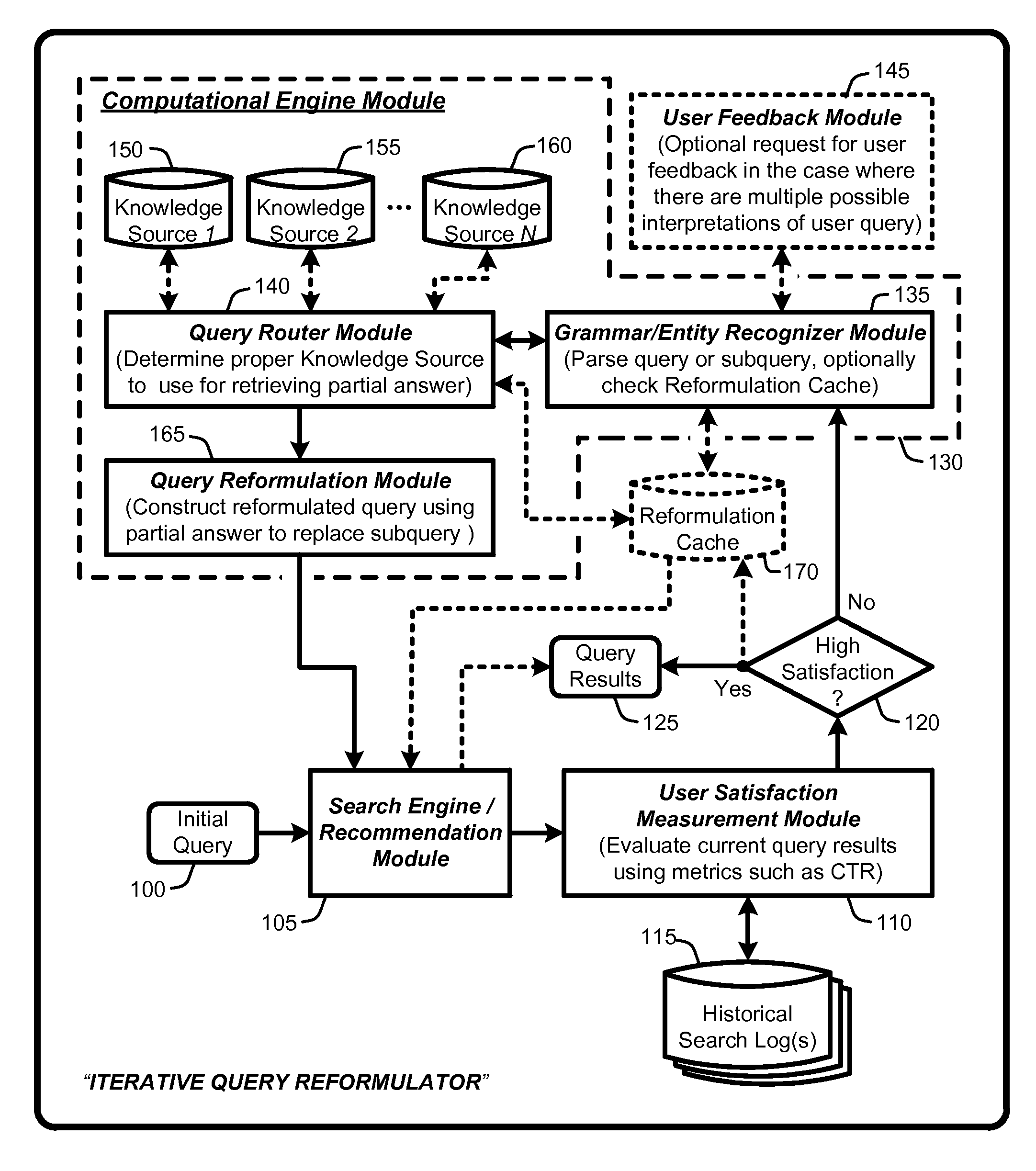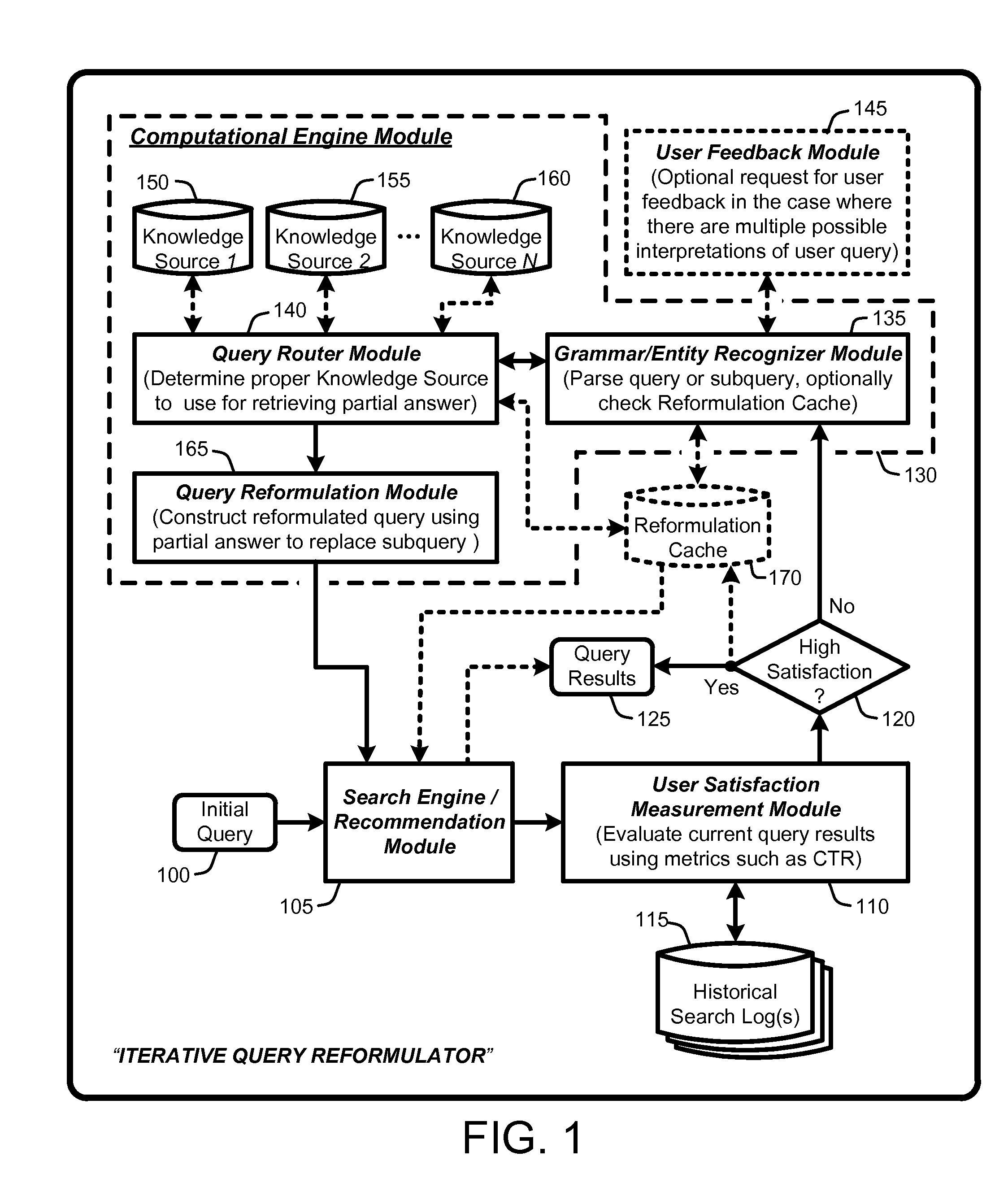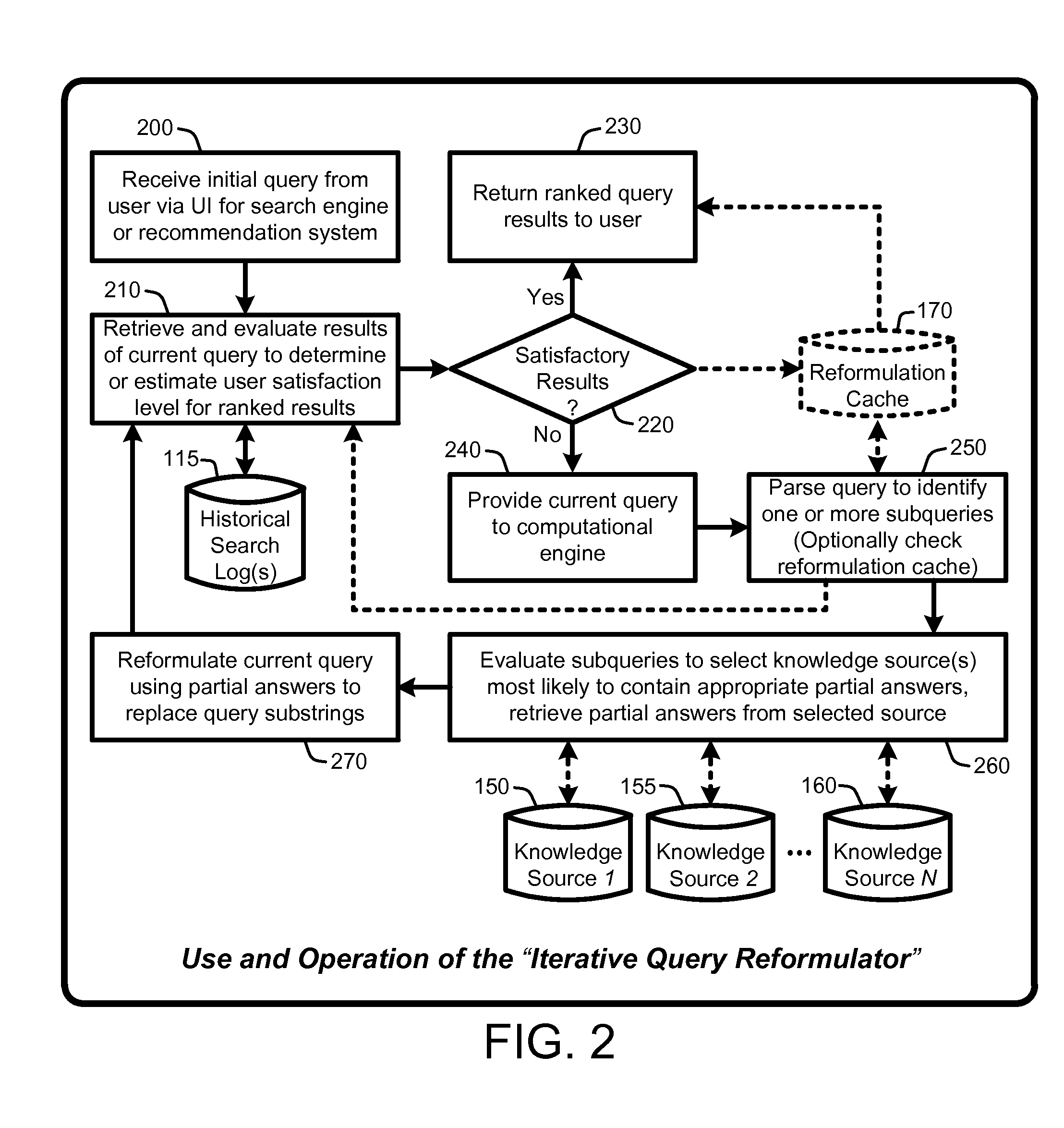Using computational engines to improve search relevance
a technology of search relevance and computational engines, applied in computing models, instruments, knowledge representations, etc., can solve the problems of limiting the ability of such platforms to determine user intent, relevance, ranking, and domains, and achieve the effect of improving relevance and high relevan
- Summary
- Abstract
- Description
- Claims
- Application Information
AI Technical Summary
Benefits of technology
Problems solved by technology
Method used
Image
Examples
Embodiment Construction
[0022]In the following description of the embodiments of the claimed subject matter, reference is made to the accompanying drawings, which form a part hereof, and in which is shown by way of illustration specific embodiments in which the claimed subject matter may be practiced. It should be understood that other embodiments may be utilized and structural changes may be made without departing from the scope of the presently claimed subject matter.
[0023]1.0 Introduction:
[0024]In general, an “Iterative Query Reformulator,” as described herein, provides various techniques for using a computational engine to reformulate initial queries through one or more iterations. This iterative query reformulation process ensures that results returned from a search engine or recommendation system using a final reformulated query have improved relevance relative to results that would have been returned using only the initial query alone.
[0025]More specifically, the Iterative Query Reformulator provide...
PUM
 Login to View More
Login to View More Abstract
Description
Claims
Application Information
 Login to View More
Login to View More - R&D
- Intellectual Property
- Life Sciences
- Materials
- Tech Scout
- Unparalleled Data Quality
- Higher Quality Content
- 60% Fewer Hallucinations
Browse by: Latest US Patents, China's latest patents, Technical Efficacy Thesaurus, Application Domain, Technology Topic, Popular Technical Reports.
© 2025 PatSnap. All rights reserved.Legal|Privacy policy|Modern Slavery Act Transparency Statement|Sitemap|About US| Contact US: help@patsnap.com



